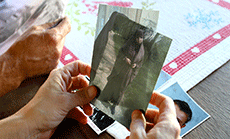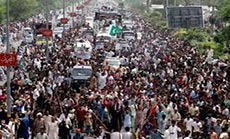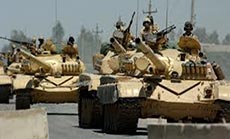July War Cables—Khoja: Let Us Support March 14 with Money and Arms

id: 93973
date: 1/25/2007 15:19
refid: 07BEIRUT133
origin: Embassy Beirut
classification: SECRET
destination:
header:
VZCZCXRO8352
OO RUEHAG RUEHBC RUEHDE RUEHKUK RUEHROV
DE RUEHLB #0133 0251519
ZNY SSSSS ZZH
O 251519Z JAN 07
FM AMEMBASSY BEIRUT
TO RUEHC/SECSTATE WASHDC IMMEDIATE 7232
INFO RUEHEE/ARAB LEAGUE COLLECTIVE PRIORITY
RUCNMEM/EU MEMBER STATES COLLECTIVE PRIORITY
RHMFISS/CDR USCENTCOM MACDILL AFB FL PRIORITY
RHMFISS/HQ USEUCOM VAIHINGEN GE PRIORITY
RHEHNSC/NSC WASHDC PRIORITY
RUEHNO/USMISSION USNATO PRIORITY 0780
----------------- header ends ----------------
S E C R E T BEIRUT 000133
SIPDIS
SIPDIS
NSC FOR ABRAMS/DORAN/MARCHESE/HARDING
E.O. 12958: DECL: 01/25/2027
TAGS: PREL, PGOV, PTER, KDEM, LE, SY, IR, SA
SUBJECT: SAUDI AMBASSADOR DOWNBEAT ON IRAN-SAUDI TALKS ON
LEBANON
Classified By: Jeffrey Feltman, Ambassador, per 1.4 (b) and (d).
1. (S) While acknowledging that he did not yet have a full
read-out of Saudi-Iranian contacts, Saudi Ambassador to
Lebanon Abdulaziz Khoja told Ambassador Feltman in a 1/25
meeting that he was "very pessimistic" about developments in
Lebanon. He noted that he was leaving an hour later to fly
to Riyadh to hear first hand from Prince Bandar bin Sultan
about Bandar's meetings the previous day and evening in Iran.
But, Khoja said, what he had received so far was not
encouraging: Bandar, calling from Teheran, had been
understandably circumspect about the substance of his
meetings, given the certainty of surveillance devices on the
phone lines. But his tone was "tired and depressed," Khoja
said. Khoja said that, upon his return to Beirut in a day or
two, he would provide a full briefing to the Ambassador.
2. (S) Khoja said that Saudi Arabia's strategy to work
toward a compromise in Lebanon was not working. The kingdom
had counted on exploiting a basic difference between Iran and
Syria. While Syria prefers chaos in Lebanon to a
Siniora/March 14 government that will establish the Special
Tribunal for Lebanon, Iran is the stronger partner, with more
influence over Hizballah. And Iran has no interest in a
Sunni-Shia conflict. So, Khoja said, the Saudis hoped to use
Iran as a moderating influence on Syria. But, according to
the Iranian Ambassador in Beirut, the Iranians have now
decided to defer to Syria regarding Lebanon policy. The
Syrians convinced Iran that Lebanon is Syria's backyard.
With Iran agreeing to step back, Syria now has "practically a
free hand" in Lebanon. Hizballah, like Iran, is not
particularly interested in a Sunni-Shia conflict. But
Hizballah is deferring to Syrian orders and to the desire of
more radical pro-Syria Lebanese politicians like Suleiman
Franjieh and Michel Aoun.
3. (S) Khoja said that Parliament Speaker Nabih Berri has
approached him (as Berri has approached Ambassador Feltman)
to ask that the international community convince the March 14
leaders to agree to freeze the tribunal now; in exchange,
Berri will use his influence to calm the street. Otherwise,
the situation will get far worse, and fast. But, Khoja said,
the crisis would not end if March 14 agrees to freeze the
tribunal for now. Berri told Khoja that, once the tribunal
is frozen, the opposition parties will insist on either the
19-11 cabinet split that would give them the
blocking/toppling minority or a 19-10-1 split, in which the
"neutral" minister comes from their ranks. The pro-Syria
March 8-Aoun opposition is not offering the majority any
concession except to remove their people from the street,
Khoja complained.
4. (S) Khoja said that, with the concurrence of his
government, he has cut off all dialogue with Hizballah.
Saudi Arabia has also dropped the notion of inviting Michel
Aoun to the kingdom. "We are in for very bad times," he
concluded. Syria has decided to "destroy" Lebanon, pitting
various groups against each other until the Lebanese ask the
Syrians to come back to end the bloodshed. Siniora and March
14 might have won various battles so far, Khoja said, but he
questioned whether the GOL and the March 14 forces had the
strength to sustain the fight over the long term. Whispering
to the Ambassador, Khoja said that "we must help Saad
(Hariri), Walid (Jumblatt), and even (Samir) Geagea," with
money and arms. (Note: The two Ambassadors met a couple of
hours before the Sunni-Shia student clashes broke out that
have subsequently spread from the university area to the
airport road, effectively throwing coverage of Paris III off
the media airwaves. End note.)
FELTMAN
date: 1/25/2007 15:19
refid: 07BEIRUT133
origin: Embassy Beirut
classification: SECRET
destination:
header:
VZCZCXRO8352
OO RUEHAG RUEHBC RUEHDE RUEHKUK RUEHROV
DE RUEHLB #0133 0251519
ZNY SSSSS ZZH
O 251519Z JAN 07
FM AMEMBASSY BEIRUT
TO RUEHC/SECSTATE WASHDC IMMEDIATE 7232
INFO RUEHEE/ARAB LEAGUE COLLECTIVE PRIORITY
RUCNMEM/EU MEMBER STATES COLLECTIVE PRIORITY
RHMFISS/CDR USCENTCOM MACDILL AFB FL PRIORITY
RHMFISS/HQ USEUCOM VAIHINGEN GE PRIORITY
RHEHNSC/NSC WASHDC PRIORITY
RUEHNO/USMISSION USNATO PRIORITY 0780
----------------- header ends ----------------
S E C R E T BEIRUT 000133
SIPDIS
SIPDIS
NSC FOR ABRAMS/DORAN/MARCHESE/HARDING
E.O. 12958: DECL: 01/25/2027
TAGS: PREL, PGOV, PTER, KDEM, LE, SY, IR, SA
SUBJECT: SAUDI AMBASSADOR DOWNBEAT ON IRAN-SAUDI TALKS ON
LEBANON
Classified By: Jeffrey Feltman, Ambassador, per 1.4 (b) and (d).
1. (S) While acknowledging that he did not yet have a full
read-out of Saudi-Iranian contacts, Saudi Ambassador to
Lebanon Abdulaziz Khoja told Ambassador Feltman in a 1/25
meeting that he was "very pessimistic" about developments in
Lebanon. He noted that he was leaving an hour later to fly
to Riyadh to hear first hand from Prince Bandar bin Sultan
about Bandar's meetings the previous day and evening in Iran.
But, Khoja said, what he had received so far was not
encouraging: Bandar, calling from Teheran, had been
understandably circumspect about the substance of his
meetings, given the certainty of surveillance devices on the
phone lines. But his tone was "tired and depressed," Khoja
said. Khoja said that, upon his return to Beirut in a day or
two, he would provide a full briefing to the Ambassador.
2. (S) Khoja said that Saudi Arabia's strategy to work
toward a compromise in Lebanon was not working. The kingdom
had counted on exploiting a basic difference between Iran and
Syria. While Syria prefers chaos in Lebanon to a
Siniora/March 14 government that will establish the Special
Tribunal for Lebanon, Iran is the stronger partner, with more
influence over Hizballah. And Iran has no interest in a
Sunni-Shia conflict. So, Khoja said, the Saudis hoped to use
Iran as a moderating influence on Syria. But, according to
the Iranian Ambassador in Beirut, the Iranians have now
decided to defer to Syria regarding Lebanon policy. The
Syrians convinced Iran that Lebanon is Syria's backyard.
With Iran agreeing to step back, Syria now has "practically a
free hand" in Lebanon. Hizballah, like Iran, is not
particularly interested in a Sunni-Shia conflict. But
Hizballah is deferring to Syrian orders and to the desire of
more radical pro-Syria Lebanese politicians like Suleiman
Franjieh and Michel Aoun.
3. (S) Khoja said that Parliament Speaker Nabih Berri has
approached him (as Berri has approached Ambassador Feltman)
to ask that the international community convince the March 14
leaders to agree to freeze the tribunal now; in exchange,
Berri will use his influence to calm the street. Otherwise,
the situation will get far worse, and fast. But, Khoja said,
the crisis would not end if March 14 agrees to freeze the
tribunal for now. Berri told Khoja that, once the tribunal
is frozen, the opposition parties will insist on either the
19-11 cabinet split that would give them the
blocking/toppling minority or a 19-10-1 split, in which the
"neutral" minister comes from their ranks. The pro-Syria
March 8-Aoun opposition is not offering the majority any
concession except to remove their people from the street,
Khoja complained.
4. (S) Khoja said that, with the concurrence of his
government, he has cut off all dialogue with Hizballah.
Saudi Arabia has also dropped the notion of inviting Michel
Aoun to the kingdom. "We are in for very bad times," he
concluded. Syria has decided to "destroy" Lebanon, pitting
various groups against each other until the Lebanese ask the
Syrians to come back to end the bloodshed. Siniora and March
14 might have won various battles so far, Khoja said, but he
questioned whether the GOL and the March 14 forces had the
strength to sustain the fight over the long term. Whispering
to the Ambassador, Khoja said that "we must help Saad
(Hariri), Walid (Jumblatt), and even (Samir) Geagea," with
money and arms. (Note: The two Ambassadors met a couple of
hours before the Sunni-Shia student clashes broke out that
have subsequently spread from the university area to the
airport road, effectively throwing coverage of Paris III off
the media airwaves. End note.)
FELTMAN
Comments

FBI: US Girls may Have Tried to join ’ISIL’
10 years ago


